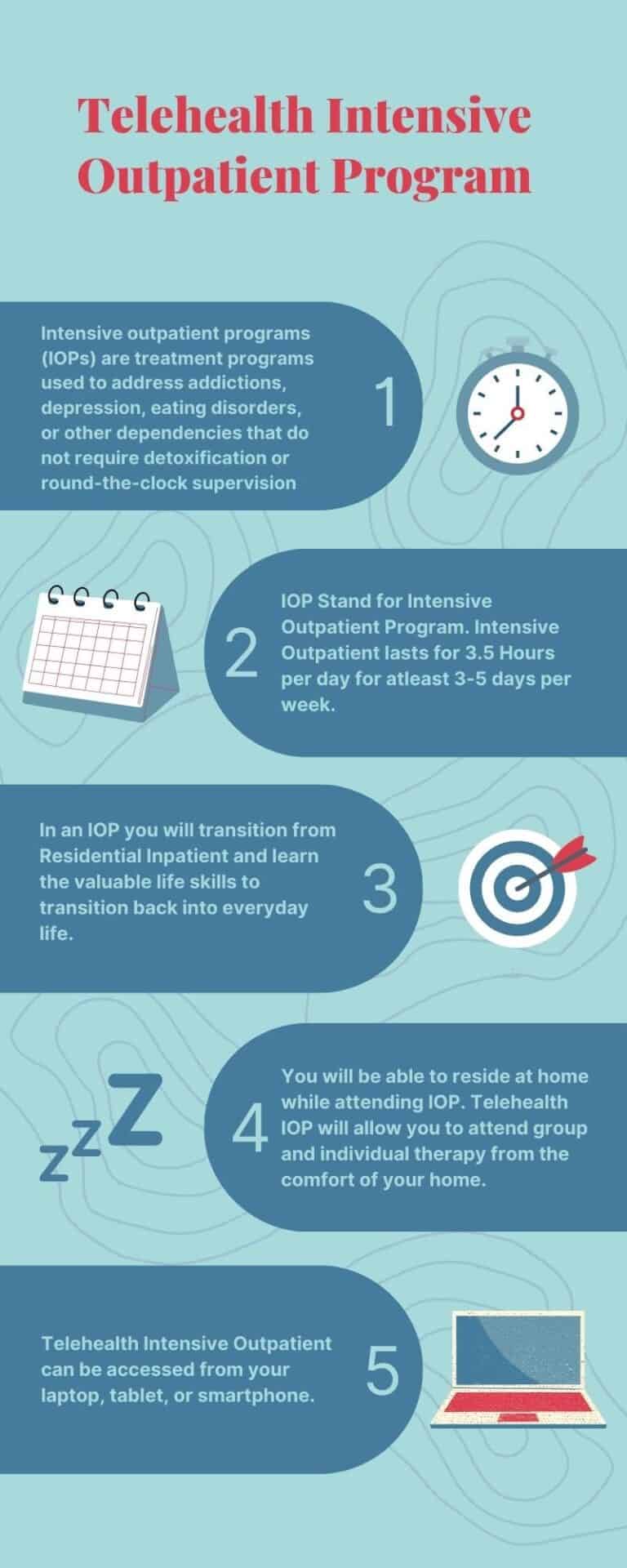Intensive Outpatient Program (IOP): A Flexible Remedy for Addiction Therapy.
Intensive Outpatient Program (IOP): A Flexible Remedy for Addiction Therapy.
Blog Article
Browsing the Intricacies of Double Diagnosis Therapy Within an Extensive Outpatient Program Establishing
In the world of psychological health and dependency treatment, the junction of dual diagnosis provides a nuanced difficulty that requires an extensive and tailored strategy. By checking out the intricacies of dual diagnosis treatment within this extensive outpatient context, a more clear course arises towards holistic and lasting recuperation for those grappling with these linked difficulties.
Double Diagnosis Introduction
What is the significance of understanding dual medical diagnosis in psychological health treatment? Double medical diagnosis refers to the co-occurrence of a material usage problem and a psychological wellness problem in a person. It is crucial to recognize and address this comorbidity as it can dramatically influence the efficiency of mental health treatment. Without appropriate identification and monitoring of both problems, individuals may battle to achieve long lasting healing and security.
Comprehending twin diagnosis is vital as it needs a thorough and incorporated method to treatment. By acknowledging the interplay in between compound use and psychological health, healthcare carriers can tailor interventions to satisfy the special needs of each person. This all natural strategy not only addresses signs and symptoms but likewise targets hidden variables that add to the double diagnosis.
Moreover, unattended dual medical diagnosis can cause a cycle of regression and getting worse psychological wellness signs and symptoms. By recognizing the complexity of twin medical diagnosis and supplying specific care, medical care specialists can support individuals in attaining lasting recovery and boosted psychological wellness.
Tailored Therapy Plans
Acknowledging the complex interplay in between compound use disorders and mental health and wellness problems, the development of tailored treatment plans is critical in dealing with the complexities of dual medical diagnosis in mental health and wellness therapy. Tailored therapy plans are customized approaches that think about the unique needs, difficulties, and goals of individuals dealing with twin medical diagnosis. These strategies are made collaboratively by a multidisciplinary team of specialists, consisting of psychoanalysts, psycho therapists, social workers, and dependency experts, to make sure detailed and incorporated care.
Tailored treatment plans normally include a mix of therapies, medicines, and behavior interventions that target both the material use condition and the mental wellness condition concurrently. These strategies might include cognitive-behavioral therapy, dialectical behavior therapy, medication-assisted therapy, specific counseling, team treatment, and family therapy, amongst other evidence-based interventions. By personalizing therapy approaches to specific conditions, customized plans can address the origin causes of double diagnosis, promote long-lasting healing, and improve general high quality of life for individuals having problem with co-occurring disorders.
Integrated Treatment Technique

By incorporating social treatments like family therapy, employment assistance, and area sources, the treatment comes to be more alternative and tailored to the individual's certain requirements. In general, an incorporated care approach in dual medical diagnosis treatment within an extensive outpatient program setting aims to offer detailed, efficient, and personalized care to people facing co-occurring conditions (Intensive Outpatient Program (IOP)).
Challenges in IOP Setting
In the context of twin medical diagnosis therapy within an extensive outpatient program, navigating the complexities of co-occurring compound use disorders and mental health and wellness conditions presents considerable challenges. One of the main Get the facts difficulties in the IOP setup is the sychronisation of treatment in between psychological health professionals and chemical abuse professionals to make certain a thorough therapy technique. This calls for effective communication, cooperation, and a deep understanding of exactly how these problems interact and affect each various other.
Furthermore, the fluctuating nature important usage conditions and mental health conditions adds an additional layer of complexity - Intensive Outpatient Program (IOP). Customers in an IOP might experience sudden shifts in their signs or material cravings, calling for prompt treatment and modification of treatment approaches. Balancing the strength of therapy and assistance while allowing clients the flexibility to manage their day-to-day responsibilities can be a delicate balance to keep
Furthermore, addressing preconception and resistance to treatment within the IOP setting can hinder development. Some people may be hesitant to reveal their dual medical diagnosis or may feel embarrassed, impeding their interaction in the restorative procedure. Getting rid of these obstacles demands an encouraging and non-judgmental environment that cultivates trust fund and visibility.

Collaborative Expert Efforts

Collaborative initiatives also include normal interaction and info sharing among employee to make sure a cohesive therapy method - Intensive Outpatient Program (IOP). This may involve case meetings, joint sessions with the client, or shared documents to track progress and readjust treatment approaches as needed. In addition, partnership may consist of entailing various other health care experts such as health care doctors or household specialists to give holistic support to the patient. Ultimately, an unified front of specialists collaborating boosts the efficiency of dual medical diagnosis therapy within an intensive outpatient program.
Verdict
To conclude, reliable twin medical diagnosis treatment within an extensive outpatient program setup needs customized treatment plans and an integrated treatment method. Difficulties may develop in this setting, yet collective efforts amongst professionals can assist browse these complexities. By addressing the unique requirements of individuals with co-occurring mental wellness and substance utilize problems, IOP programs can offer thorough and holistic like click this link sustain recuperation and total health.
Report this page